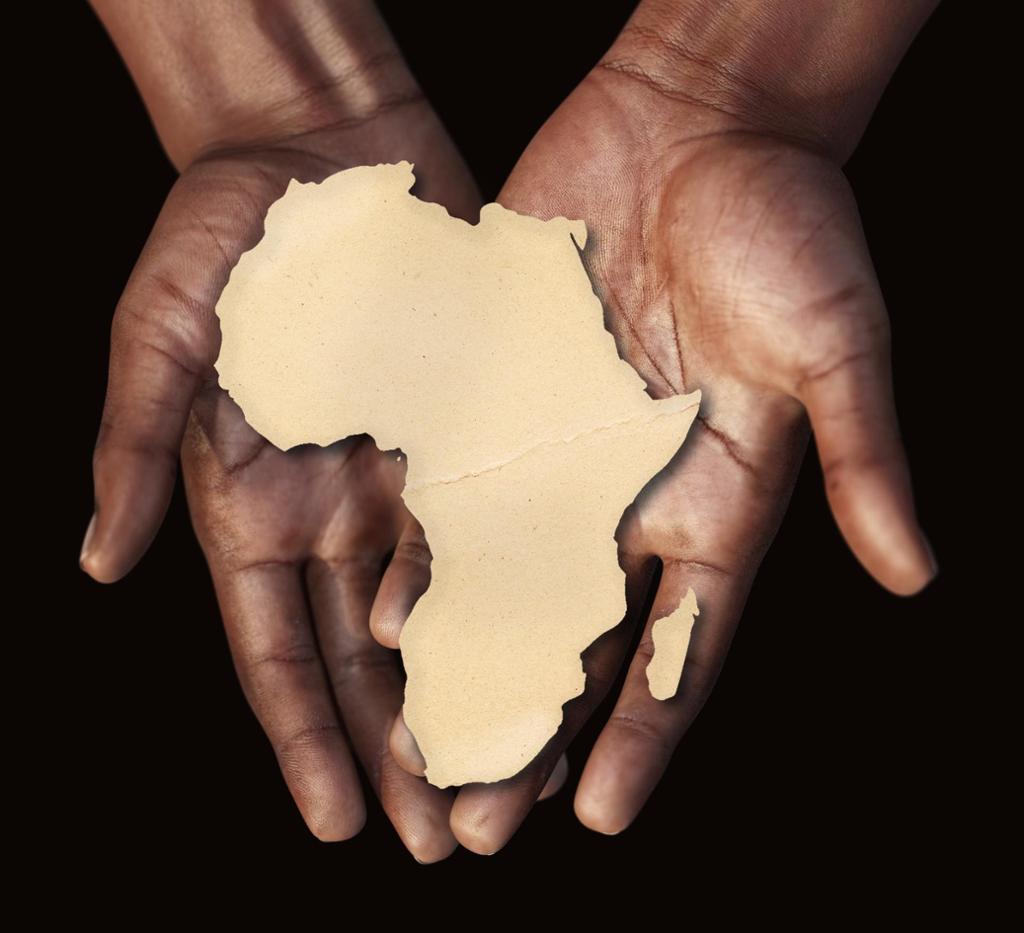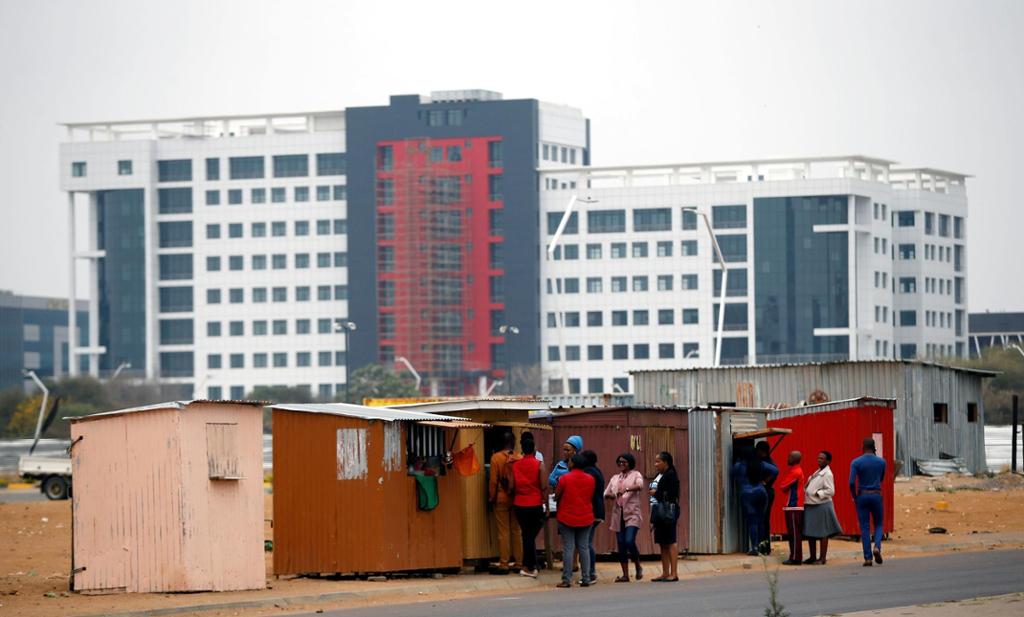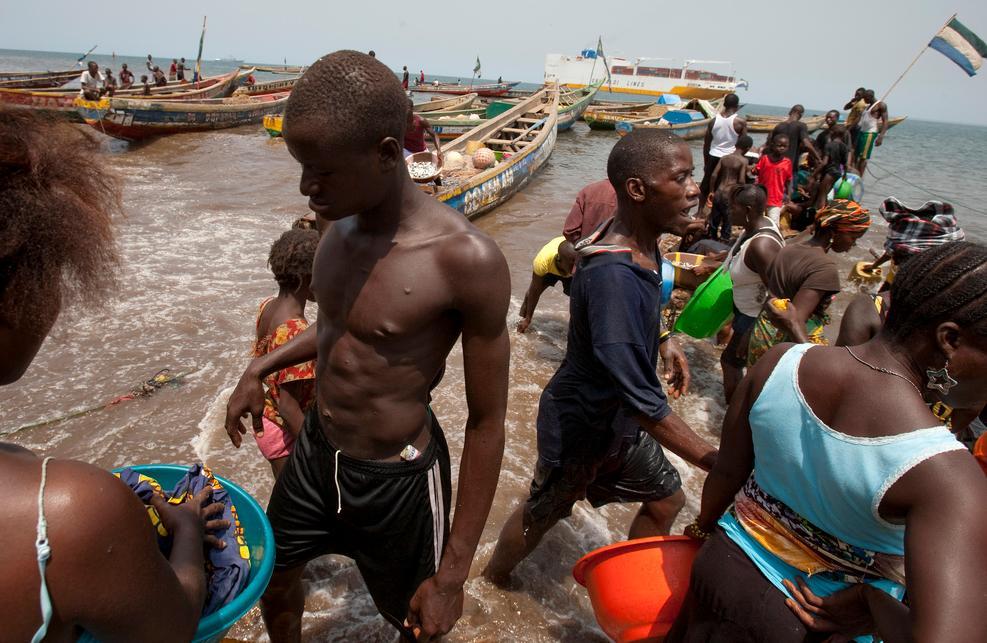Global issues in an African context
Global Issues in an African Context

Before you read, translate the following words into Norwegian.
On a UN ranking of so-called “failed countries”, seven out of the top ten are African countries. These countries share some features which may explain the lack of growth on this continent.
One of the most important legacies of the colonial era were the artificial boundaries created by the European colonial powers. The continent was randomly split up into countries without regard to which tribes lived there, and there could be several hostile tribes and ethnic groups within the border of the same country, all with a low sense of national identity.
After independence, conflicts between tribes and ethnic groups would erupt. Politically, multi-party systems inherited from their previous colonial powers were often replaced with a single-party system, in which power was concentrated in the hands of the few. The result was often abuse of power by members of the ruling party and mismanagement of the economy, again leading to discontent among the people, instability, and often military coups.
It should be mentioned that we also find countries which have been able to create stability and build strong national identities, Botswana and Lesotho being two examples. Both countries have kept the multi-party system inherited at independence, and today Botswana has one of the fastest growing economies in the world.

Foreign debt is another problem that has held many African countries back. As countries in Africa gained their independence, development and economic growth was slow, and foreign investments were welcomed. During the Cold War, the United States and the Soviet Union were fighting to gain political influence over the developing countries, and the West offered cheap loans to African countries to get them to turn their back on communism. The debt of the developing countries increased dramatically in the 1970s, and as a result a debt crisis started to emerge in many countries at the beginning of the 1980s.
The debt has since only increased, placing many developing countries in Africa in a very difficult situation. Instead of building schools and hospitals, investing in infrastructure and helping to alleviate poverty, they have had to channel more and more money into their escalating debt repayments. This is a situation that struggling countries will not be able to get out of unless lenders are willing to write off or reduce the debt.
Lack of development and corruption often go hand in hand. The International Corruption Index, published annually by Transparency International, gives African countries a very poor rating, and the lowest scoring region worldwide is sub-Saharan Africa. Corruption is a disaster for development for a variety of reasons.
First, it becomes difficult to attract foreign investment that could boost economic growth. Sustainable businesses are unlikely to thrive in corrupt contexts, and investors will often not be able to harvest the profit they expect.
Also, corruption fuels inequality among people and creates a sharp divide between rich and poor. Kenya has one of the largest income gaps between people, with less than 0.1% of the population owning more wealth than the bottom 99.9% combined. Despite very positive economic growth over the past few years, it has failed to trickle down to the poorest citizens. If the economic growth of a country does not benefit the people, the result will be a lack of confidence in the political elite, and often insurrections and instability.
Finally, corruption wastes the resources that can build sustainable economies. According to Transparency International, African countries are losing at least $50 billion annually due to corruption. This is money that should have been invested in health care, education, infrastructure, and other measures that would have improved living conditions for people.

The African continent has been experiencing economic growth for many years, with countries like Ethiopia, Côte d’Ivoire and Senegal leading the way. There is clear progress, at least if we look at the percentage of people living on less than $1.90 a day. The proportion of people in Africa in absolute poverty has declined from 54% in 1990 to 41% in 2015, which is a very positive development.
However, if we take the African population growth into account, the number of people on the African continent living in absolute poverty has actually increased. Africa is expected to double its population by 2050, which means that a quarter of the world’s population at that time will live in Africa. According to World Bank estimates, about 20% of people in sub-Saharan Africa will still be living in poverty in 2030, unless governments in Africa step up their poverty reduction efforts.
If this goal is to be reached, there must be a stronger emphasis on building good governance and strong institutions. We have to remember that Africa, in all respects, is a very diverse continent, and the political systems and quality of governance vary like everything else. However, according to the Democracy Index published annually by The Economist, the trend is clear: More than half the countries of Africa would be defined as authoritarian or hybrid regimes, i.e. non-democratic.
Also, if you want to fight poverty, you first have to fight inequality. By reducing inequality between people, poverty will decrease, and this will again result in growth. The focus should be on investing in education, health, and gender equality, especially in rural areas with weak infrastructure. The UN has marked out the course for these goals in their Sustainable Development Goals.
You can read more about the Sustainable Development Goals here.
In pairs, use the words and phrases below to summarise the text that you have just read. Include as much information from the text as you can:
richest continent on earth
artificial boundaries
single-party system
cheap loans
debt crisis
corruption
foreign investments
divide between rich and poor
wasting resources
population growth
the future
good governance
inequality
Guoskevaš sisdoallu
Tasks related to the article "Global issues in an African context"